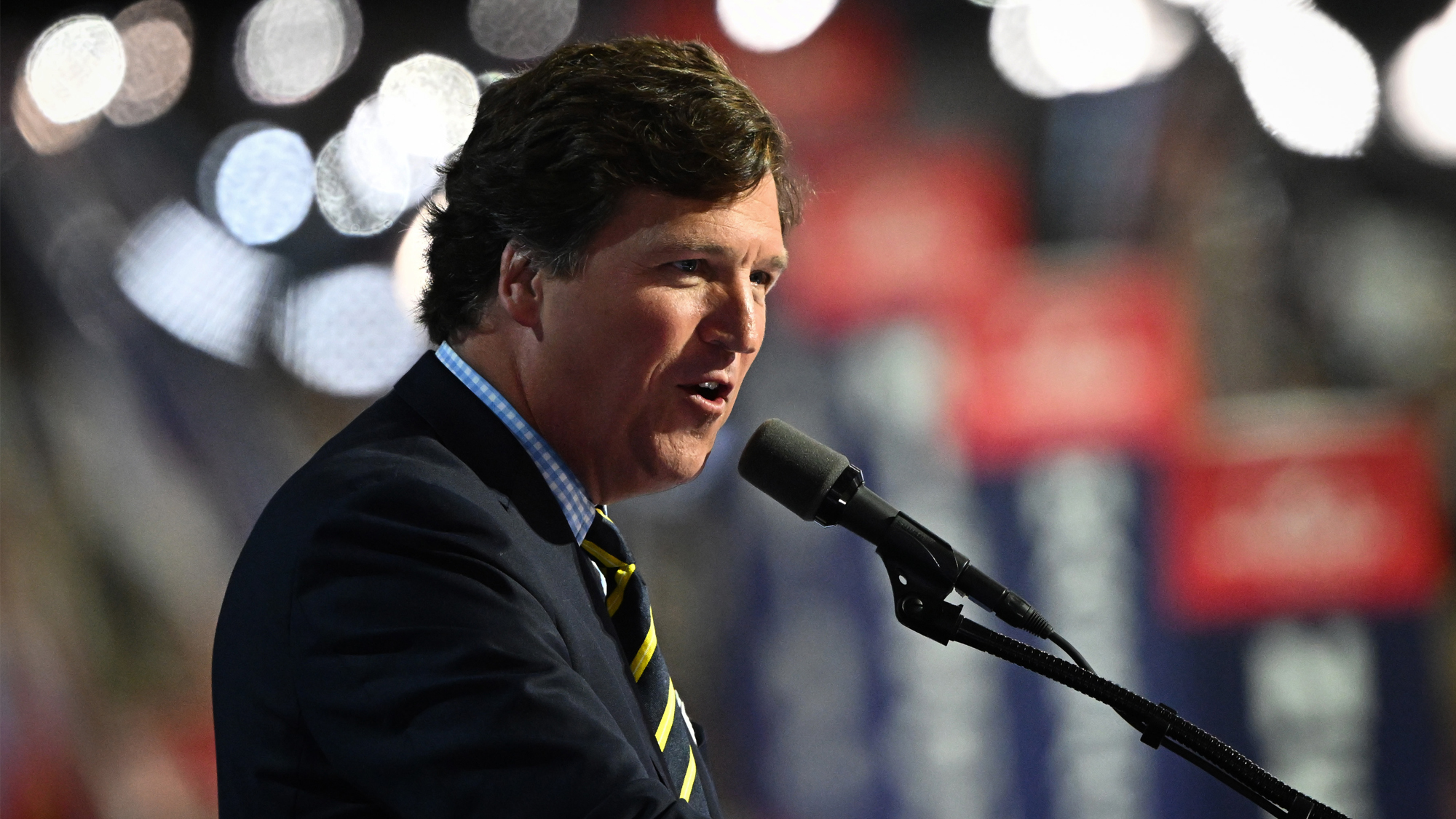Decolonizing conservatism
As they tear down the civic tradition, Tucker Carlson and his fans come for Churchill.


A free daily email with the biggest news stories of the day – and the best features from TheWeek.com
You are now subscribed
Your newsletter sign-up was successful
The horseshoe theory of politics is that if you go far enough left or right you wind up at almost the same place. If you're not sure of exactly what that means, you can look at the career of Tucker Carlson, who just did a highly hyped interview with Nazi apologist Darryl Cooper. You can familiarize yourself with Cooper's take on World War II — short version: All Hitler really wanted was peace with England — if you are so inclined.
But to me the interesting part is not Cooper's view of Hitler, but of Winston Churchill, whom he calls the "chief villain" of the war. Cooper is not the first amateur historian to be driven batty by Churchill. The British prime minister has long been the ultimate bête noire for the hard left. When academics talk about "decolonization," where they want to start, just like Cooper and Carlson, is almost always with taking Churchill down a peg.
Why the animus? Churchill, a complex man with his share of faults, represents the triumph of the Western tradition, which makes him a magnet for haters. We've heard the Cooper line before. It's just "Hey, hey, ho, ho, Western Civ has gotta go" with a coat of right-wing polish. The hard right watched enviously as the Left found a market for identity politics, and the conclusion of MAGA conservatives was that it looked like a good line of business.
The Week
Escape your echo chamber. Get the facts behind the news, plus analysis from multiple perspectives.

Sign up for The Week's Free Newsletters
From our morning news briefing to a weekly Good News Newsletter, get the best of The Week delivered directly to your inbox.
From our morning news briefing to a weekly Good News Newsletter, get the best of The Week delivered directly to your inbox.
Of course, building up the politics of grievance and identity means tearing down historical tradition. If that's the future of the conservative movement, it's dark indeed. People before Cooper have speculated about where history could have gone if the U.S. and U.K. had minded their own business and let Germany and Russia fight it out on the continent. One was an Englishman not much liked by either the Left or Right: George Orwell. He wrote a whole novel about that kind of alternate history, which also investigates just where you get to when the ends of the horseshoe meet. He called it 1984.
This is the editor's letter in the current issue of The Week magazine.
A free daily email with the biggest news stories of the day – and the best features from TheWeek.com
Mark Gimein is a managing editor at the print edition of The Week. His work on business and culture has appeared in Bloomberg, The New Yorker, The New York Times and other outlets. A Russian immigrant, and has lived in the United States since the age of five, and now lives in Brooklyn with his wife and son.
-
 Political cartoons for February 21
Political cartoons for February 21Cartoons Saturday’s political cartoons include consequences, secrets, and more
-
 Crisis in Cuba: a ‘golden opportunity’ for Washington?
Crisis in Cuba: a ‘golden opportunity’ for Washington?Talking Point The Trump administration is applying the pressure, and with Latin America swinging to the right, Havana is becoming more ‘politically isolated’
-
 5 thoroughly redacted cartoons about Pam Bondi protecting predators
5 thoroughly redacted cartoons about Pam Bondi protecting predatorsCartoons Artists take on the real victim, types of protection, and more
-
 Crisis in Cuba: a ‘golden opportunity’ for Washington?
Crisis in Cuba: a ‘golden opportunity’ for Washington?Talking Point The Trump administration is applying the pressure, and with Latin America swinging to the right, Havana is becoming more ‘politically isolated’
-
 Democrats push for ICE accountability
Democrats push for ICE accountabilityFeature U.S. citizens shot and violently detained by immigration agents testify at Capitol Hill hearing
-
 Fulton County: A dress rehearsal for election theft?
Fulton County: A dress rehearsal for election theft?Feature Director of National Intelligence Tulsi Gabbard is Trump's de facto ‘voter fraud’ czar
-
 ‘Melania’: A film about nothing
‘Melania’: A film about nothingFeature Not telling all
-
 Greenland: The lasting damage of Trump’s tantrum
Greenland: The lasting damage of Trump’s tantrumFeature His desire for Greenland has seemingly faded away
-
 Minneapolis: The power of a boy’s photo
Minneapolis: The power of a boy’s photoFeature An image of Liam Conejo Ramos being detained lit up social media
-
 The price of forgiveness
The price of forgivenessFeature Trump’s unprecedented use of pardons has turned clemency into a big business.
-
 The ‘mad king’: has Trump finally lost it?
The ‘mad king’: has Trump finally lost it?Talking Point Rambling speeches, wind turbine obsession, and an ‘unhinged’ letter to Norway’s prime minister have caused concern whether the rest of his term is ‘sustainable’
